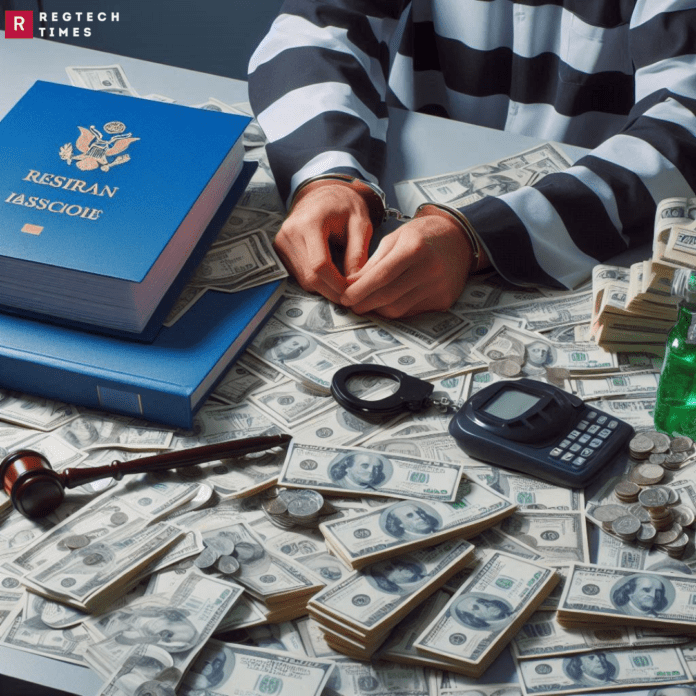United States Attorney Roger B. Handberg announced today the arrest of Clarence Christofer Ward, also known as Khaled Yaqud Mansur-El. Ward faces a series of serious federal charges, including one count of wire fraud, ten counts of money laundering, and one count of making a false claim to the Internal Revenue Service (IRS).
If convicted, he could face significant prison time: up to 20 years for the wire fraud offense, up to 10 years for each count of money laundering, and 3 years for the false claim offense. Additionally, Ward could be required to forfeit at least $4,197,981, representing the proceeds obtained from these alleged offenses.
Details of the Alleged Scheme
According to the indictment, Ward’s fraudulent activities spanned from January 1, 2019, to February 22, 2021. During this period, Ward is accused of orchestrating a sophisticated scheme to defraud the IRS. The indictment details how Ward electronically submitted a false tax return for a trust, falsely claiming that the trust had overpaid the IRS by $4,159,229. This deceitful maneuver resulted in Ward receiving a substantial refund of $4,197,981.28 from the IRS, based on the fraudulent information provided in the tax return.
Ward allegedly used the fraudulently obtained funds in various transactions, including dealings with title companies and a car dealership. Notably, part of the ill-gotten money was used to purchase four real properties in Chattanooga, Tennessee, highlighting the extent and audacity of the alleged scheme. These transactions were part of a calculated effort to launder the stolen funds and integrate them into the legitimate economy.
Investigation and Legal Proceedings of IRS Fraud
The investigation into Ward’s activities has been conducted by the IRS Criminal Investigation division, emphasizing the seriousness with which federal authorities treat such allegations of financial fraud. IRS Criminal Investigation, a division specializing in tax-related criminal activity, played a crucial role in uncovering the complexities of Ward’s scheme.
Assistant United States Attorney Hannah Nowalk is leading the prosecution in this high-profile case. The prosecution’s approach will be critical in navigating the complex financial evidence and ensuring that justice is served.
Potential Penalties and Forfeitures
The charges against Ward carry significant potential penalties. If convicted, Ward could face:
- Up to 20 years in federal prison for the wire fraud offense.
- Up to 10 years’ imprisonment for each of the ten counts of money laundering.
- Up to 3 years in federal prison for the false claim offense.
In addition to prison time, Ward could be required to forfeit at least $4,197,981, the amount alleged to have been obtained through his fraudulent activities. This forfeiture is intended to ensure that criminals do not profit from their illegal actions and to recover funds for the government. The forfeiture process involves seizing assets that are traced back to the criminal activities, which in this case includes the properties purchased in Chattanooga and other assets.
Broader Implications and Legal Precedent
This case underscores the federal government’s ongoing commitment to combating financial fraud and protecting the integrity of the tax system. Financial fraud not only undermines public trust but also diverts essential resources from the government, impacting public services and programs. High-profile cases like this serve as a deterrent to others who might consider engaging in similar fraudulent schemes.
The public nature of this case also highlights the transparency and accountability of the legal process. By publicly announcing the charges and providing details of the alleged scheme, the U.S. Attorney’s Office aims to reassure the public that such crimes are taken seriously and will be prosecuted to the fullest extent of the law.
The Importance of the Presumption of Innocence
An indictment serves as a formal accusation that a defendant has committed a federal crime, but it is important to note that it does not equate to a conviction. Clarence Christofer Ward, like all defendants, is presumed innocent until proven guilty in a court of law. A key tenet of the American legal system, the presumption of innocence guarantees that each person is given a fair trial. It ensures that the burden of proof lies with the prosecution, which must establish the defendant’s guilt beyond a reasonable doubt.



